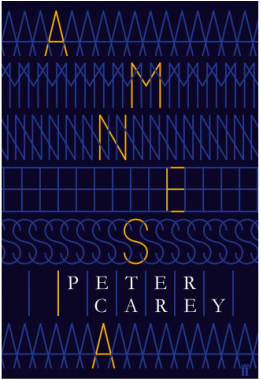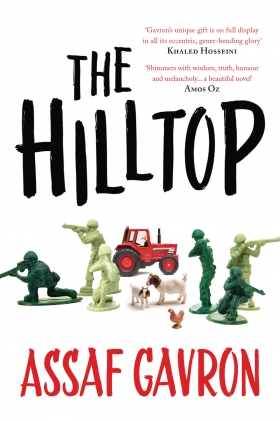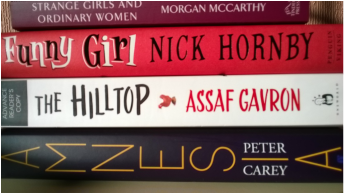
The new novel from ‘that other’ Australian Booker Prize winner, Peter Carey, is not another treatise on dementia, but a political cyber-thriller on the collective forgetting of the dark side of Australia’s “special relationship” with the USA. While for many readers from outside that country it may be more a matter of ignorance than amnesia, with several cultural references passing over our heads, this is an important and engaging novel which marries the essential human factor to disturbing parallels with global politics today.
The novel opens with Felix Moore, Australia’s last remaining left-wing journalist and typical feckless white male, reading about the worm that has infected the computerised control systems of thousands of Australian and American prisons, while awaiting the court’s ruling against him in a trumped-up defamation case. But historically it begins with the battle of Brisbane in 1942, when Australian and American servicemen fought each other on the city’s streets and Celine Baillieux, whom Felix encounters later at university, is conceived through rape. Thirty-odd years later, Australia is facing its greatest constitutional crisis with the (possibly CIA-engineered) dismissal of prime minister, Gough Whitlam, and his progressive cabinet, as Celine gives birth to her first and only child, Gaby, future cyber hacker and the world’s most wanted woman in 2010 (p 167):

I’m not sure how seriously the reader is expected to take the ensuing swashbuckling story of multiple kidnappings, audiotaped confessions and low-grade red wine but it’s clear from this interview in the Guardian that the author is deadly serious about the issues behind the book and the parallels with the response of the US to another upstart Australian, Julian Assange. While his righteous anger might have made this novel a little less accessible than it needs to be, the unheroic Felix and the idealistic Gaby make for interesting company. When I stopped worrying about the depth of my ignorance I found this a powerful novel on corrupt corporations, the fragility of democracy and the conflicts between idealism and compromise.
After their parents die in a car crash, Gabi and Roni Kupper grow up with adoptive parents on a kibbutz. Although the novel doesn’t address this in great detail, it seems that the model of collective child rearing militates against their forming attachments with their new parents and they grow up with the sense that they are each other’s only meaningful family. Yet, while the younger boy, Gabi, is awkward and prone to violent outbursts, Roni seems well adapted, moving through the standard Israeli milestones of school, military service and university. He makes friends, has girlfriends, moves to Tel Aviv and goes into a business partnership running a bar. Meanwhile, Gabi seems to fail at every attempt to follow in his brother’s footsteps.
The novel, however, begins years later, with the boys in middle age. Gabi has found religion and peace of mind as a member of the fledgling community of Ma’aleh Hermesh C, an illegal – yet apparently thriving – Jewish settlement on Palestinian and nature reserve land on a rocky hilltop in the West Bank. Yet his peace is shattered by the arrival of his brother, penniless after his years playing the stock exchange in America. Roni fails to endear himself to the community by forging a business partnership with an olive grower from the neighbouring Palestinian village. But there are greater threats to the Israeli settlers; while they cheerfully ignore the regular demarcation and demolition orders, the international diplomatic scandal sparked by a curious Washington Post correspondent proves a greater challenge.
The story provides the stage to showcase the hodgepodge of communities that make up twenty-first century Israel: religious versus secular Jews; Tel Aviv yuppies versus Palestinian villagers; modern capitalism versus kibbutzim collectivism; the ever-present military and the shadow of the United States. The absurdity of the conflicting rules and regulations regarding the legitimacy of the settlement – where one government department will provide services to improve its stability while another works towards its abolition – was reminiscent of Joseph Heller’s Catch-22 or Magnus Mills’ The Scheme for Full Employment. Although played out to comic effect which raised a frequent smile in this reader, I was somewhat depressed by the cartoonish approach to the tragedy of the Israeli occupation of Palestine. It’s always rather daunting to open a novel to find a cast list preceding the text, especially one set in a country and culture with which one is unfamiliar. While it’s left me with a deeper appreciation of the complexity of the issue of Israeli settlement in the West Bank, the to and fro of the political shenanigans along with the confusion of characters did threaten t overwhelm me at times.






















 RSS Feed
RSS Feed





















